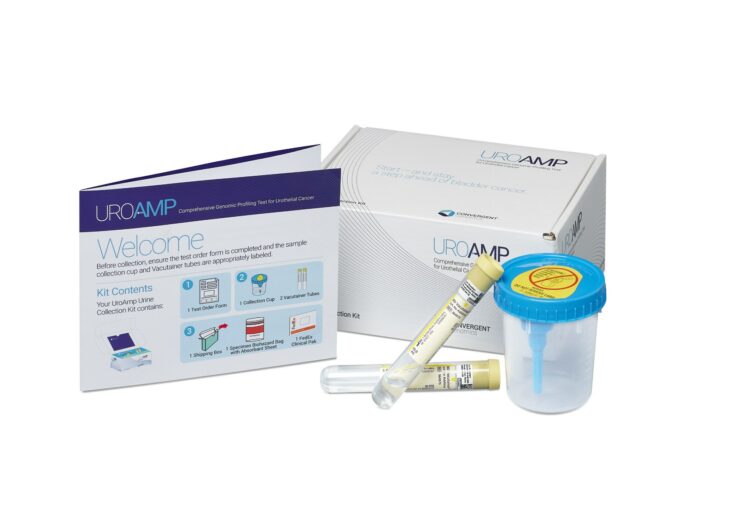The clinical study, conducted by researchers from major academic centres and urology practices across the US, evaluated the diagnostic and prognostic performance of UroAmp, compared to standard-of-care procedures, in 581 patients

UroAmp detects bladder cancer before symptoms appear. (Credit: PRNewsfoto/Convergent Genomics)
Convergent Genomics announced that its non-invasive genomic urine test UroAmp can detect bladder cancer and predict its recurrence before the onset of symptoms, based on data from a newly published study.
The multi-centre case-control study was conducted by researchers from major academic centres and urology practices across the US.
The study enrolled a total of 581 patients, including those undergoing evaluation of haematuria (blood in the urine) along with those being monitored for recurrence after surgery.
It evaluated the diagnostic and prognostic performance of UroAmp, compared to standard-of-care procedures, such as cystoscopy, cytology and pathology.
The study results showed that UroAmp can detect minimal residual disease in patients after cystoscopy and urine cytology and can predict recurrences more than a year earlier to clinical diagnosis.
Convergent Genomics founder and CEO, and study co-author Trevor Levin said: “The combination of prognostic insights, therapeutic targets, and the ability to non-invasively monitor genomic response over time with UroAmp presents a new paradigm to enhance clinical trials and to ultimately better personalize care and improve outcomes.”
Harvard Medical School and Massachusetts General Hospital assistant professor of Urology, and lead study author Keyan Salari said: “These findings demonstrate the power of genomics in detecting minimal residual disease from urine and accurately stratifying a bladder cancer patient’s risk to better inform decisions about their treatment and surveillance.”
According to the company, high-risk patients were six times more likely to experience cancer recurrence than low-risk patients, with an overall recurrence rate of 60% to 70% after treatment.
Convergent said that its UroAmp uses next-generation DNA sequencing to deeply probe 60 key urothelial cancer genes for mutations while searching for changes across the whole genome.
It generates a complete genomic profile, providing prognostic information about a patient’s cancer and predicted responses to genome-targeted drug therapies.
In the study, the UroAmp molecular grade prediction algorithm identified high-grade cancers with a positive predictive value of 88% and a specificity of 95%.
Also, a majority of mutations found in this study are being investigated as targets for new drugs or for predicting responses to existing FDA-approved therapies, said the company.
Earlier this year, a clinical study showed that UroAmp could help doctors accurately predict bladder cancer as many as 12 years before the onset of clinical signs and symptoms.
